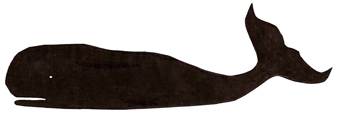|
Paul Cuffee also known as Paul Cuffe was born on Cuttyhunk Island located a few miles off of the coast of Westport, Dartmouth and New Bedford, Massachusetts on January 17, 1759 and died on September 9, 1817.
He was a Quaker.
Paul was a successful ship builder, whaling captain, businessman and farmer.
His mother was an Aquinnah Wampanoag Indian and his father a freed African slave, who being an African Ashanti, most likely came from Ghana.
Paul was an abolitionist and patriot. |

This Captain Paul Cuffee engraving made in 1812 is from an original drawing by Dr. John Pele of Bristol, England |
|
He established the first integrated school in Westport, Ma. and in 1813 donated most of the finances to build a new Quaker meeting house.
He often spoke at Sunday services at the multi-racial services held there.
He built a successful shipping business with a store on the corner of Union and Water Streets (known as the "Four Corners") in New Bedford that he shared with his sons in law.
He worked with the British to help resettle former African slaves in Sierra Leone.
Cuffee helped to establish "The Friendly Society of Sierra Leone", to gather financial support for the colony.
Early years:
When he was only 16 years old, and with limited education he signed aboard a whaler and spent some years on cargo ships.
He could read and write. As time passed he taught himself navigation, mathematics and to be a seafarer.
During the Revolutionary war troubles, he was captured and held for 3 months by the British in New York in 1776.
Afterwards, he was able to study while farming and saving money. |
Paul and his brother David built a small boat in 1779, and though David did not like to sail offshore Paul did take on some cargo and on a few occasions was robbed by pirates. Eventually, he made money shipping to Nantucket.
In 1780, he refused to pay taxes because as a black he was not allowed to vote.
Then he petitioned the Bristol County council to end the unfair taxes without representation.
He lost the case, but his efforts influenced the legislature's 1783 decision to grant voting rights to free males.
Voting was still restricted to men.
He worked hard, hired crews and built a fleet of ships. In 1783, on February 25, he married Alice Pequit who was Wampanoag.
He also made money by buying, selling and building various ships. In 1799 with $3,500.00, he bought 140 acres of waterfront property in Westport.
When the early years of the 1800's arrived Paul was possibly the wealthiest African American in the United States.
He spent a lot of money helping to transport free Africa Americans who wanted to leave and establish a colony in Freetown, Sierra Leone.
Although he hoped that the colony would succeed, the British who had control of it were not very co-operative despite promises. The colonists themselves had trouble with the governance imposed by the British.
Paul became friendly with president Madison and others in Washington as a result of his efforts but understood the southern whites to be more interested in shipping out troublesome African Americans.
Despite all of his efforts, the Sierra Leone colony was unsuccessful.
Eventually his health had gone downhill and he died at 58 years old on September 9, 1817 leaving an estate worth nearly $20,000.00
His last words were "Let me pass quietly away."
On Saturday, September 24, 2011 a park was dedicated in his honor at the corner of Johnny Cake Hill (Bethel St.) and Union Street adjacent to the spot on Union and North Water streets where Cuffe had the store named " Cuffe & Howards".
|

